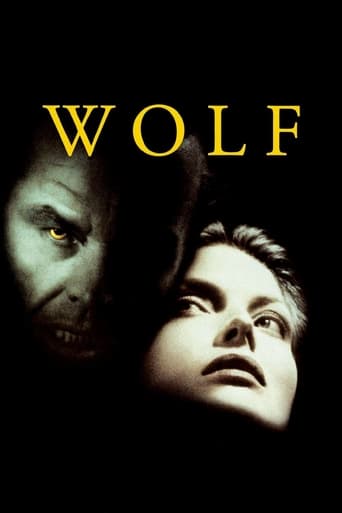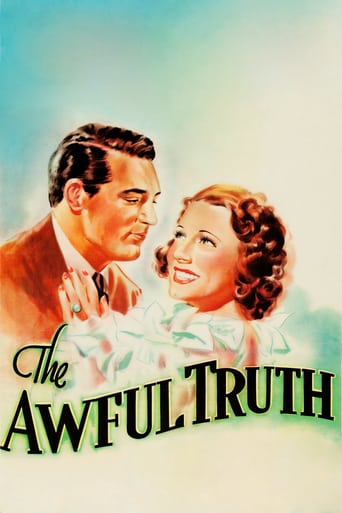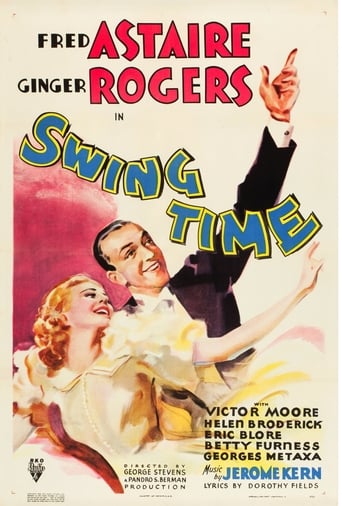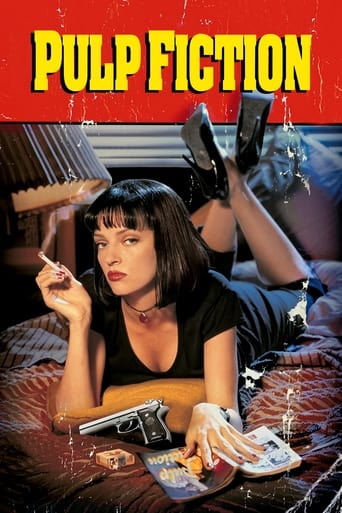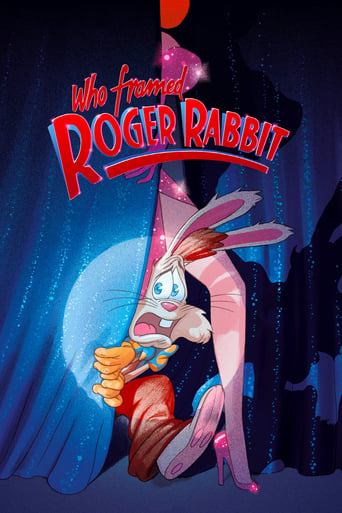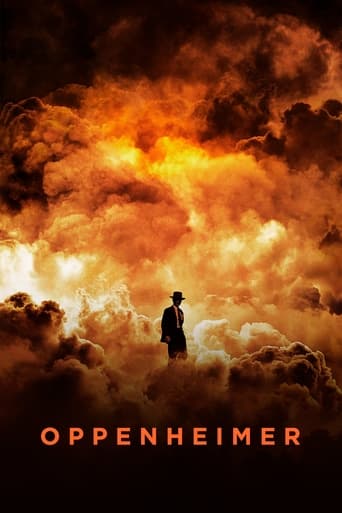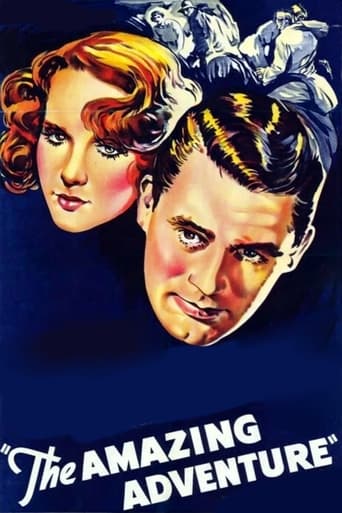


The Amazing Quest of Ernest Bliss
A bored millionaire wagers his doctor that he can support himself at a working class job for year without touching his inheritance.
-
- Cast:
- Cary Grant , Mary Brian , Peter Gawthorne , Henry Kendall , Leon M. Lion , John Turnbull , Iris Ashley


Reviews
the audience applauded
Save your money for something good and enjoyable
Must See Movie...
Unshakable, witty and deeply felt, the film will be paying emotional dividends for a long, long time.
This inter-war comedy-drama is centred on Ernest Bliss; he is a millionaire but still isn't happy. A friend advises him to see Sir James Aldroyd, a Harley Street consultant. Sir James tells Bliss that the problem boredom; he has so much money he doesn't need to do anything. The two end up making a bet; Bliss must live for a year without touching his financial reserves; if he loses he must pat £50,000, if he wins he gets an apology. He leaves his expensive flat in the hands of his butler the catches a tube to the East End with only five pounds in his wallet. He struggles to get a job but eventually gets one at a struggling business but after using some of his own money to help the company he moves on so he can't be seen as benefitting from his wealth. He later gets a job working as a chauffeur but keeps in touch with the secretary from his former job. They develop a relationship but will she settle down with a man she thinks is almost penniless?The story is simple enough but works nicely. The protagonist may be rich but the message to viewers, few of whom could aspire to his wealth, is that money doesn't buy happiness; that it is better to be poor and happy then rich and bored... not too subtle but not as patronising as it could be. Gary Grant does a fine job as Bliss and Mary Brian is likeable as his romantic interest, Frances. There are a couple of entertaining if not entirely necessary subplots; one involving a pair of crooks who think Bliss is merely somebody who looks like him and try to recruit him to rob himself and second involving an employee who is trying to take advantage of Frances. Overall this isn't a classic but it is fun enough, especially if you are a fan of Cary Grant or 1930s British cinema.These comments are based on watching the shortened version of the film; I must say it did feel a bit rushed at times so it would be interesting to compare it to the full length version.
Ernest Bliss (played by Cary Grant) is a wealthy playboy and socialite Londoner. He doesn't work and he has nothing to do. He has never had to do anything constructive, and his life has become a bore. He doesn't know what to do to while away his time between evenings of partying. And he doesn't even enjoy the partying and night life.As many another person in his situation, he is unhappy. He can't enjoy all the things that his wealth can buy. He is empty, listless, unsatisfied. A friend recommends a doctor who can "cure" him. Sir James Alroyd (played by Peter Gawthorne) analyzes Bliss's problem in direct and unflattering terms. He suffers from selfish consumption, self-centeredness, a lack of empathy for the travails of others, and the compunction that follows. He couldn't even survive on his own for a year.Thus begins the "Amazing Adventure" of Ernest Bliss. Over the next year, this silver spoon-fed spoiled millionaire must learn how to live. He must learn how to find work, even when there's no work to be found. He must learn to work and hunt, scrape and save, ask and beg – for work, for food, for a break, for a chance. In the course of his adventures and moving from one job and place to another, something amazing happens. He begins to identify with everyday people. His life transforms as he begins to care for others. Life has meaning. Life has purpose, if only to share with others or to help someone out of a tight spot. This film is an amazing story of one man's redemption – his rebirth. And Cary Grant plays the role to perfection. Not that we movie buffs should be surprised. Archibald Leach grew up poor in England, and mostly uneducated beyond age 14. While Grant is most remembered and loved for his many comedies and romantic roles, he was very talented as a dramatic actor as well. He proved it in a variety of roles he had interspersed with his comedy romances over the years. While his acting ability was never in question, some of those films were less than box office smashes. The public would allow him an occasional dramatic role, but for the most part, he had to play comedy and romance. In his leading man roles, he played opposite a host of Hollywood's best female stars of film over a period of four decades.This film had several actors in supporting roles, most of whom did very well in their brief scenes. The one exception is Mary Brian, as Frances Clayton. She had more time than the rest on film, but her role was stiff and wooden at times. As Bliss takes on his year of learning how to live, not all is so serious that we don't have some humor. We see that in a few lines in places, and in one scene toward the end.At one point, Bliss says to his banker, "Oh, what's the difference talking to you about love?" The banker says, "Very little, no doubt. But would a young lady disappear like this if there weren't some other interests?" Bliss says, "Nonsense! She loves me. She said so. I know she does. There's never been anybody else." After a pause, he resumes, "She wouldn't do that! She couldn't do that!" The bankers says, "Whatever that may be, I'd rather fancy that is just what she has done."When Bliss begins his one-year quest without any ID or money, he tells his man/butler, Clowes (played by Quentin McPhearson) that he, Clowes, won't have anything to do for the next year in his job. He is to simply stay in Bliss's home and do nothing until his return. Bliss says, "Now, don't tell anyone about it, Clowes." Clowes says, "I quite understand." I won't say what happens to Clowes over the next months, but when all is resolved later, he says, "Believe me sir, it was having no work made me go wrong. It was too hard a job having nothing to do at all." Bliss says, "Of course it was. That used to be the trouble with me." When Bliss goes into the room to fetch his new bride, Frances, he finds her crying. Bliss says, "Darling, you're crying. What's the matter, baby?" Frances says, "Cinderella didn't cry in the story. But she would have in real life. I'm too happy not to cry. Too happy."This is a wonderful story of one man's redemption, and how that touches the lives of many others. It is based on a book by prolific English novelist Edward Phillips Oppenheim. He wrote more than 100 novels from 1887 to 1941. But for the lesser quality of the film on my DVD, and the sub-par acting noted, it would earn 10 stars.Here are some more favorite lines from the film. For more dialog, see the Quotes section under this IMDb Web page of the movie.Ernest Bliss, "Rather difficult man to see, aren't you, Sir James?" Sir James Alroyd, "Not for those who are punctual. Any other complaints?"Sir James Alroyd, "You know, your father was a clever man... but he made a big mistake when he left you two million pounds to play the fool with." Ernest Bliss, "Believe it or not, Sir James, I'm paying you 20 guineas to give me medical advice, not a lecture."Ernest Bliss, "And believe me, Mr. Masters, this is the first time in my life I've been without a job." Frances Clayton, "You've been very lucky. But, uh, have you ever had one?"Ernest Bliss, "Oh, say, I got the job." Frances Clayton, "I was afraid you would. Mr. Masters can take on anyone." Ernest Bliss, "Afraid I would? Hey, I can sell stoves."
The Amazing Adventure (Alfred Zeisler, 1936) is an earnest but muddled independent film featuring Cary Grant just as his star was about to go stratospheric. He plays a wealthy, despondent layabout challenged by his doctor to go for a year without relying on his riches. There are effective vignettes, notably those featuring selfless working class folk, but the film is ultimately a bit unsure of itself, suggesting that "money isn't everything" while its newly philanthropic protagonist spreads joy through his generous use of the paper stuff. The movie also lacks universality, with an absence of real insight into the society it is depicting and a heavyhanded, clichéd romantic subplot. As a chance to see Grant working on his home turf it's interesting, but as a British variation on contemporary Capra fare, it falls well short.
I found the film interesting as it was set in London where I currently live and showed the London of my father and mother's young adulthood. I was born shortly after WWII began (7th November 1939) and I recall a few things about war, chiefly trying clean my father's brass buttons on his RAF uniform - he was a flight engineer but also had air gunner and then observer/navigator badges. I sometimes think how life was like for him growing up in the 1930s and it was mostly a hard time as the film reflects as Cary Grant finds it hard to get a job. My father died relatively young and I as I had moved away from home - Pembrokeshire - by the time I began to think about asking him about his early life and later war time experiences, sadly, he was dead.I would like to have more detailed information on the film in terms of where it was shot - and if it was a British production - as it seems to be as the credits on the cheap DVD I got recently cite Empire Films - and the USofAmerica never formally claimed an empire although Bush currently is seeking to control the Western World and terrorise the rest-why Cary Grant appears in it. The 'mise en scene' reminds me very much of the Alfred Hitchcock Film, Blackmail, and thus I expected it to have been made much earlier - say 1931 - 32, as by 1936, filming had improved in terms of quality of visual presentation - in Go into your Dance, for example, there is a wonderful tracking shot across a bar/ dance hall/night club, as there is in Shall we Dance, when FA & GR enter the bar on the ship, so this film in comparison seems very badly shot in terms of camera technique and editing.The DVD I got seems to be of a 16mm print, as was on I got from Tescos on Second Chorus - however, there may be a better quality DVD available - but that can't save an overstretched storyline. However, it is interesting to see quasi socio-dramas like this to see how the film makers saw society and how the film going public liked to see themselves, perhaps. Most ordinarily people in the 1930s were lesser educated than today and probably very naive and complacent about their situations - in the scene where the old car mechanic gets the sack my automatic thought was, where is his union representative?I found it hard to get any information at all and took a long time to get to this website. I entered The Amazing Adventure into the AOL search engine and this particular film did not appear - so I have had to take a lengthy circuitous route to find what information you have. In contrast when I looked up Kevin Costner's Adventures of Robin Hood, I was able to get a lot of information, most interestingly about the places the film was shot, one being St Bartholemew's Church in SE London - and I intended to visit this as its interiors are very different from the more usual perpendicular style - but I have not yet got around to doing this.anyway, 'thank you for the information you have provided - which was much better than other sites.B. Michael (Kilometres) James aka Penvronius Miles Cambrensis

